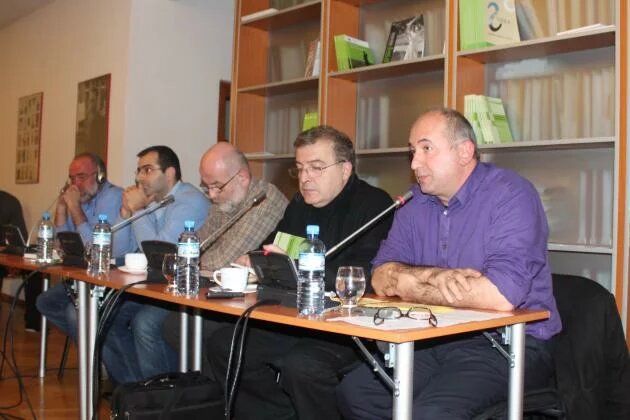
On 20 October 2010, the Heinrich Boell Foundation hosted a public debate about the current situation in the Northern Caucasus and its possible influence on the security and stability of Georgia.
The debate was organized following the decision by the government of Georgia on 11 October 2010, to employ a visa-free regime for Russian citizens who are residents of the Northern Caucasus. The Georgian government described its decision as a precondition for re-building Georgia’s traditional and historical ties with the peoples of the Northern Caucasus. Previously, residents of this region had to get a Georgian visa. After the decision, they can enter Georgia and stay in the country legally for 90 days.
Some opponents labeled the step as a provocation to irritate the Kremlin. They also argued that the decision was not based on a clear strategy towards the Northern Caucasus region. Consequently, critiques questioned its long-term purpose and focused their attention on possible threats it may contain.
Speakers at the discussion included:
- Mamuka Areshidze – Director, Caucasus Center for Strategic Research;
- Paata Zakareishvili – Director, Institute for the Study of Nationalism and Conflict;
- Giorgi Molodini – Director, Georgian Institute for Russian Studies;
- Oleg Panfilov – Journalist, Professor at Ilia State University.
Mamuka Areshidze noted that the decision contained some risks and threats to the security of Georgia. Paata Zakareishvili emphasized that the Georgian policy towards the Northern Caucasian region of the Russian Federation collided with the state interests of Georgia, since it challenged Russia. By enacting this policy, the government of Georgia postponed prospects for improving the Georgian-Russian relations for a long time, he concluded.
In his speech, Giorgi Molodini highlighted current political developments in the Northern Caucasus and their possible influence on Georgia. He anticipated prolongation of the conflict between the central government in Moscow and the local population of the Northern Caucasus, which for Georgia would mean bordering a tense region in permanent conflict.
Oleg Panfilov presented a different view. He welcomed the decision of the Georgian government and stressed the importance of giving the population of the Northern Caucasus information, as well as an opportunity to observe democratic developments in Georgia.
After presenting their views, speakers answered questions asked by participants of the debate. Remarks and evaluations came from the audience as well. For example, Ivliane Khaindrava said the North Caucasus is the issue in which the Georgian and Russian sides can avoid a zero-sum game to reach an interest-matching agreement. Khaindrava expressed his hope that such a moment will come soon in relations between the Georgian and Russian governments.